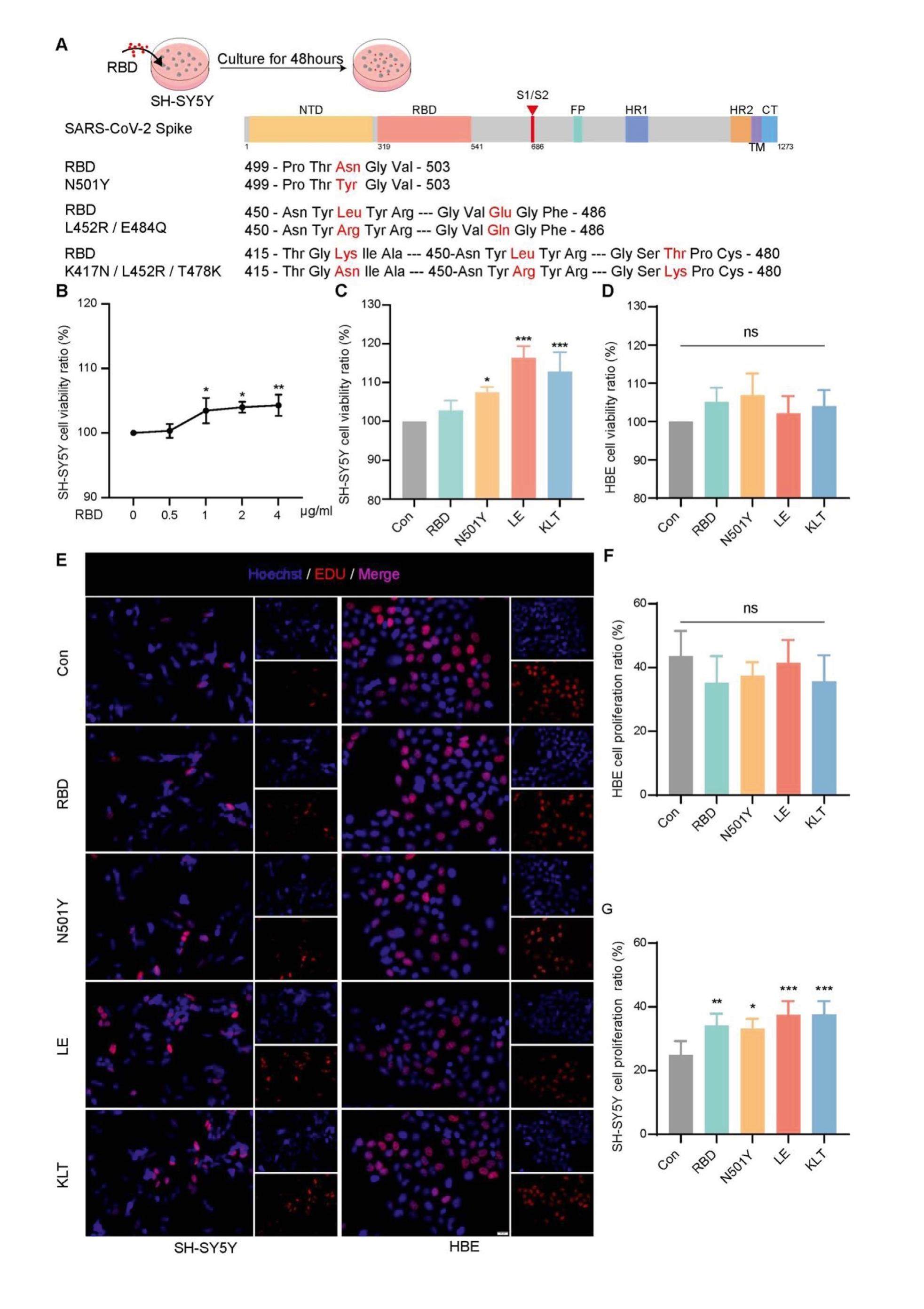
Epigenetic regulation of SARS-Cov-2 spike protein modulates cellular viability and nascent RNA transcription in neuronal cells


SARS-CoV-2 has been demonstrated to be highly susceptible to neuron-and glial-like cells, but there is no consensus regarding how the virus affects neurons following neuroinvasion. It is therefore unknown if and how SARS-CoV-2 maintains the homeostasis of neuronal cells. Herein, we revealed that the receptor-binding domain (RBD) of the SARS-CoV-2 spike protein acted as an extracellular remodeling component to undermine epigenetic regulation, perturb nascent RNA (nsRNA) transcription, promote mitochondrial biogenesis, and increase cellular viability in SH-SY5Y cells. Through boosting the expression of KDM6B, RBD proteins decreased H3K27me3. Down-regulation of KDM6B was able to decrease molecular and cellular abnormalities previously mediated by all RBD mutants (K417N/L452R/T478K: KLT;L452R/E484Q: LE;N501Y), including NRF2 expression levels, ROS scavenging capacity, mitochondrial activity, and cell proliferation capacity. Further, we also investigated whether RBD proteins affected mitochondrial biogenesis epigenetically. After treatment with the LE mutant, ChIP-qPCR revealed that H3K27me3 was repressed in the NRF2 promoter regions, resulting in NRF2 activating. This study, therefore, uncovered a novel epigenetic mechanism by which SARS-CoV-2 RBD proteins regulate mitochondrial biogenesis via an extracellular signal transduction channel and remodel neuronal cell proliferation.
